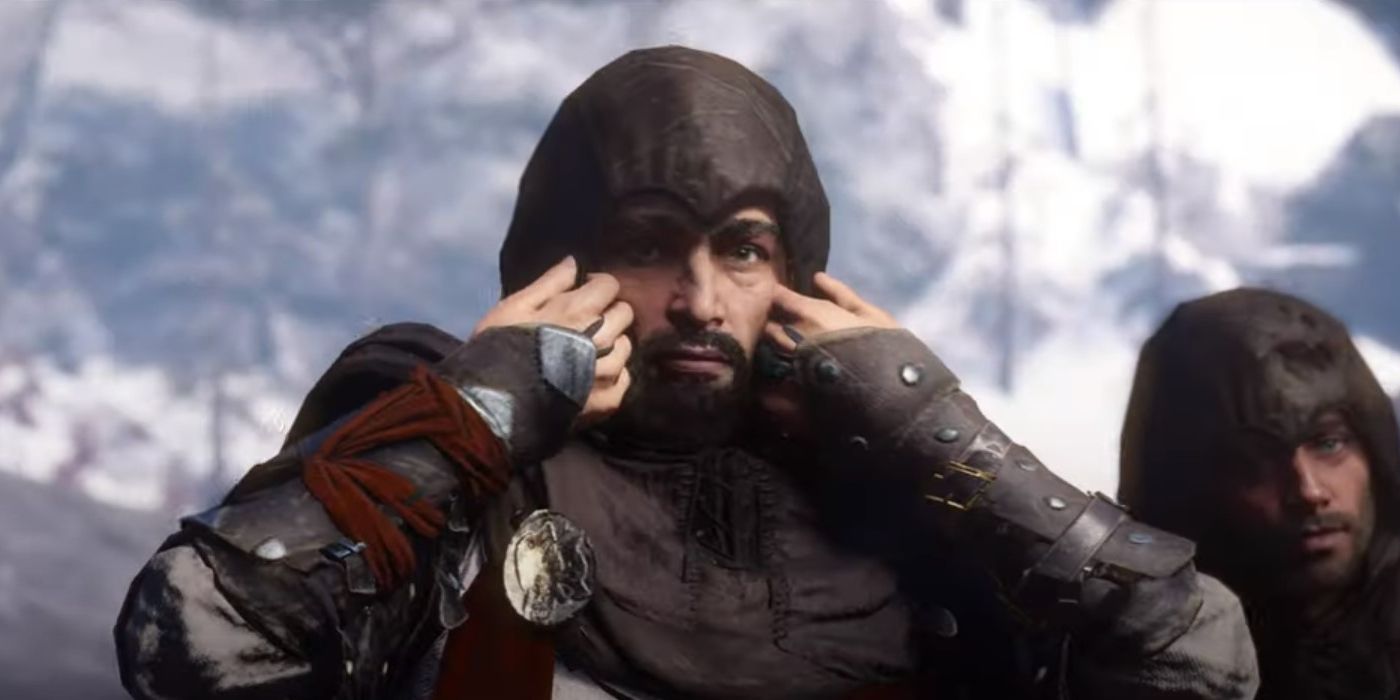For a franchise that's supposed to be about a secret shadow order of assassins, Assassin's Creed hasn't been very sneaky the last few games. Assassin's Creed Origins and Assassin's Creed Odyssey took the series in a more action-oriented direction, encouraging players to kick in the door rather than skulk in the shadows. Assassin's Creed Valhalla, however, looks to return to its roots and make stealth an important part of gameplay.
Assassin's Creed Valhalla is the latest game in the Ubisoft franchise that tracks the millennia-long war between Assassins and Templars. The newest entry puts players in the shoes of the Viking Eivor. Set in 873, Eivor and their fellow Vikings are trying to establish a foothold in England. Eivor will raid, form alliances, and help their new Assassin allies stop a mysterious threat lurking in the country. Assassin's Creed Valhalla will also have a mystical side, as players will be able to find and battle creatures of legend.
Despite being a brutal Viking warrior, Assassin's Creed Valhalla has sections that encourage players to take a more subtle approach to the game. As Ubisoft points out in a preview, Vikings in England are not particularly welcome. In Assassin's Creed Valhalla, many towns are "Distrust Areas" where attention will be paid to any Viking who enters them, and guards will attack those Vikings on sight. Players who need to go to town to complete a mission will have to avoid drawing attention, using mechanics that haven't been seen in the last several Assassin Creed games. This includes wearing a hood, blending into crowds of roaming monks, or angering a drunk to cause a distraction.
Assassin Creed Valhalla Brings Stealth Back to Towns
The return of social stealth mechanics is a welcome one, as it reminds players that Assassins aren't supposed to operate in the open. The earlier Assassin's Creed games constantly reinforced the need to act with discretion by using a notoriety system. The more attention a player drew to themselves, whether by knocking a person over or carrying a dead body through the streets, the more quickly guards would notice and investigate a player, making it more difficult to travel through town without getting into a fight. There were fairly easy ways to lower notoriety, but the message was clear: don't draw attention.
Assassin's Creed Origins and Assassins' Creed Odyssey, on the other hand, didn't have much in the way of consequences for a player's actions. Yes, being spotted by a guard in a restricted zone could put the player in combat with a whole garrison, but no amount of climbing buildings or other outlandish behavior did anything to truly endanger the player while free roaming town. Players could move through towns without any worry about what the citizens thought of them. The return of social stealth mechanics is particularly important for Assassin's Creed Valhalla, where lead character Eivor is an invader. It would have made little sense for a player to raid one village, than casually walk into the next town just over the hill. Assassin's Creed Valhalla reminds players there is a time and a place for wielding a giant axe, and a time and a place to slip silently through crowds.
Source: Ubisoft
Assassin’s Creed Valhalla releases on November 10 on PC/Windows, PlayStation 4, Xbox One, Xbox Series X/S, and Google Stadia, with a November 12 launch on PlayStation 5.


